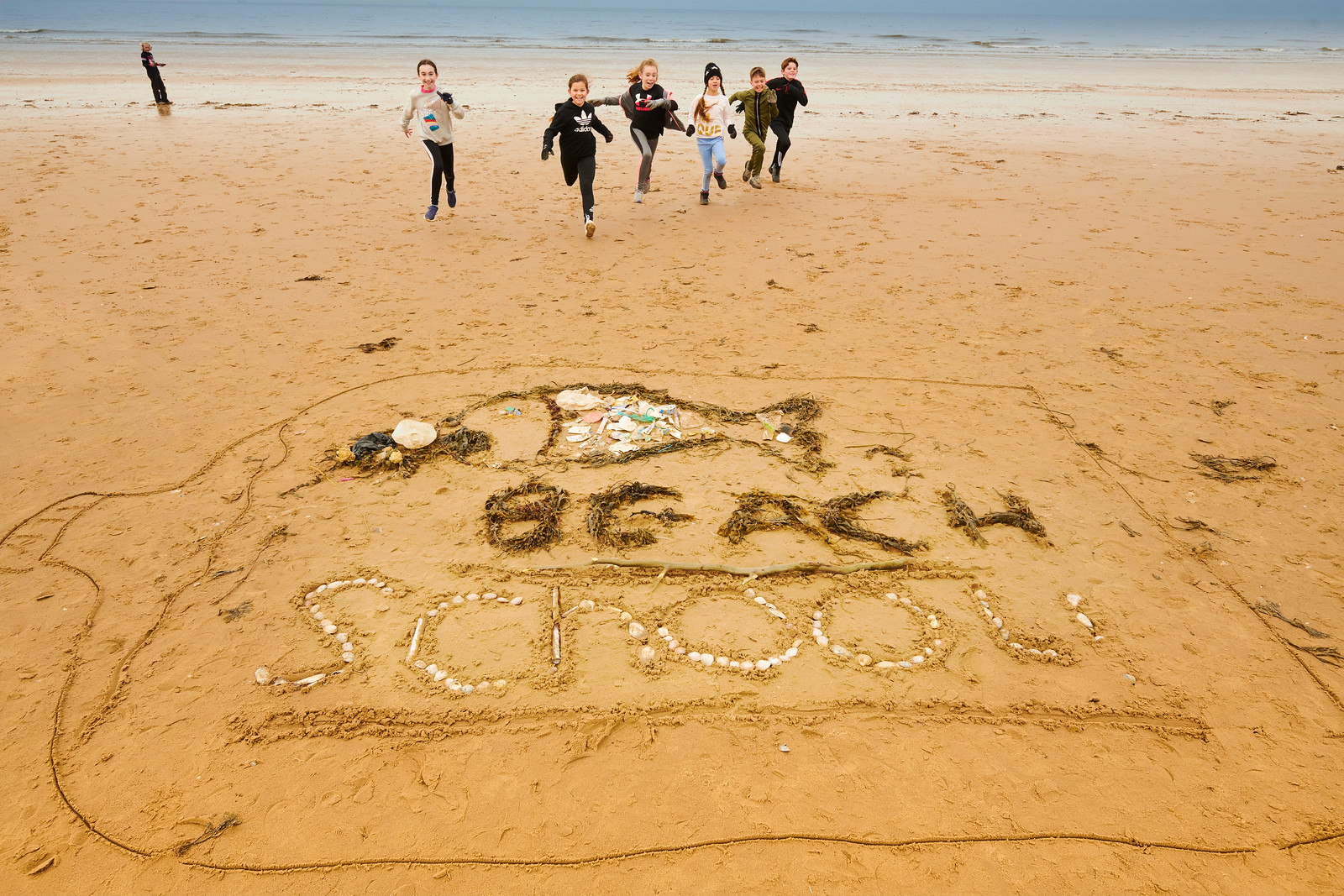
A team of academics from Edge Hill University are conducting research which could play an instrumental role in the future of beach schools.
Cait Talbot-Landers, Senior Lecturer in Primary Education, is the founding member of a network of schools and organisations developing Beach School in the North West, along the Sefton and Fylde coasts, working alongside Faculty of Education’s Dr Bethan Garrett and Louise Hawxwell.
Working together in the network, teachers, educators and university academics learn how to deliver and develop Beach School without having to pay private companies.
After the success of the Forest School movement, which was brought to the UK from Scandinavia in 1995, there is now a push towards teaching and learning on the beach, which provides great benefits for children, teachers and the community.
For children, learning on the beach engages and motivates them, enlivening the curriculum as they can learn anything from maths using pebbles, to English by using charcoal to write on driftwood or simply writing in the sand. It’s great for their emotional wellbeing as it awakens their imaginations, as well as providing them with a greater understanding of ecology and instilling them with pride in where they live.
As well as being a more interesting way of teaching, Beach School enables teachers to re-engage with the curriculum and think about it in a different way.
According to research, when children are engaged and can see the positive impact that they can make on their environment, they become more motivated. As well as making them more aware of their surroundings, Beach School is a great way to help children become more aware of citizenship and how they can get involved with the community.
A steering group has been formed from the network, representing voices from schools and Early Years settings, coastal landowners, environmental organisations and academics from the Department of Children, Education and Communities, who have been working together to devise six principles that will develop the way beach schools are practiced.
The principles include supporting subject knowledge and curriculum development, risk benefit management, developing engagement with ecological and conservation issues and identifying effective ecological practice for teaching on the coast.
“As part of education programmes, students are introduced to Beach Schools and receive practical training in the pedagogy associated with it, in order for them to be able to feel confident in being able to lead groups of children and young people on the beach,” said Cait. “They work alongside their tutors and members of the network such as the Sefton Rangers, Gems in the Dunes project and the National Trust, developing their understanding of practical ecology and how to make learning across the curriculum more relevant, creative and enjoyable.”
The next step is to test the principles by trialling them with teachers during the six training sessions that Cait and the network hold on Sefton coast and Fylde coast beaches.
If you’re a school or a teacher who would like more information or to join the network, please contact Cait Talbot-Landers on landersc@edgehill.ac.uk.
